All You Need to Know About Chatbots for Business in 2023
You’d be hard-pressed to find a business that doesn’t use a chatbot, especially in 2023. They’ve revolutionized how we communicate with customers across multiple industries.
But if you’re still unsure about chatbots and what they can do for your business, we’re discussing everything you need to know; from chatbot business ideas to top platforms to get you started, and if you really need a chatbot for your business.
- 1. What Is A Chatbot & How to Use it For My Business?
- 2. Why Are Chatbots Essential for Business?
- 3. What Are the Typical Benefits of Chatbots for a Business?
- 4. Which Type of Companies Use Chatbots?
- 5. Top Chatbot Messaging Platforms
- 6. How to Choose A Chatbots for Your Business?
- 7. Final Words - Implement Chatbot Technology in Business
- 8. Frecuent Questions about chatbots for Business
What is a Chatbot & How Can You Use it for Your Business?
A chatbot is software designed to emulate human speech and provide both customers' and employees' support. Most businesses use a rule-based chatbot that recognizes certain keywords and responds with appropriate prompts.

If your customer says “I’d like to refund my order”, the chatbot Will recognize the Word ‘refund’ and provide appropriate responses. But we’ve also seen an influx of AI chatbots that can handle requests automatically, without human input.
The most common uses for chatbots are for customer service, as a front line to your customer's FAQs and messages.
In short, chatbots can be incredibly useful as they provide you with an extra pair of hands to run your business.
Why are Chatbots Essential for Businesses?
Photo by Microsoft 365 on Unsplash
Chatbots are essential, especially for small businesses with insufficient manpower to handle daily workloads. A chatbot’s main purpose is to streamline communication as well as convert leads into sales.
Since there’s ‘someone’ at the helm 24/7, you don’t need to worry about losing customers who would usually wait for a human agent to respond. It allows your customers to get an instant response to queries.
Not to mention that chatbots are great for gathering data. With this data, you can better understand what your customers want, making it easier to tailor your platforms to what they’re looking for.
But besides the obvious benefits for your customers, chatbots can also lessen your staff’s workload. With every case your chatbot handles, that’s one less case for your staff. This improves efficiency and gives your employees time to handle other tasks.
Deploying a chatbot to your website and social media platforms can be incredibly useful for a myriad of reasons. But if you’re still not convinced, here are some of the most tangible benefits of using a chatbot for your business.
The Benefits of Using a Chatbot for a Business
Improved Lead Generation
A chatbot is an excellent way to improve your lead generation.
This is mainly applicable to AI chatbots that can guide users through your sites, recommend products, and gather contact information for long-term relationships.
Since AI chatbots can engage in memorable, human-like conversations, potential customers are more likely to purchase or hire your services since they feel comfortable and trust your brand.
Automated Follow Ups
Chatbots are great at automatically following up with customers on their existing cart or showcasing products they might be interested in. This helps reduce cart abandonment and increase sales.
Since you don’t need to manually reach out to customers, this is a great way to create passive sales using just your chatbot.
Bolster Marketing
With the latest AI chatbots, you can feed them data like docs, presentations, websites, and more to train the AI with relevant information.
The AI chatbot can then help draft marketing plans, social media posts, blogs, and much more. Since the AI has analyzed your business’s data, it can create relevant and high-quality responses to bolster your marketing team.
Increased Customer Engagement
A chatbot that’s available 24/7 to handle customer messages is a great way to boost customer engagement on your site and social media platforms.
Since the chatbot can deliver instantaneous, personalized & relevant responses, customers can stay engaged with your pages and are more likely to stay on-site browsing your products.
Reduced Manpower & Costs
The biggest benefit of deploying a chatbot is the reduced manpower and operational costs. Chatbots can drastically reduce costs with an excellent ROI.
Since you can deploy a chatbot to handle customer service or as an assistant 24/7, you’re saving a lot of time and manpower on mundane & repetitive tasks.
What Types of Companies Use Chatbots?
Companies have utilized chatbots in a number of creative ways. They’re the perfect addition to your company’s workflow so you shouldn’t be intimidated thinking that your company isn’t big enough to use a chatbot.
Most chatbot-building platforms have affordable chatbots for small businesses. But if you’re still wary, here are some examples of successful companies using chatbots –
Starbucks
Back in 2017, Starbucks implemented its own AI chatbot on its mobile app that allowed customers to order and customize their drinks, using either messages or voice commands.
The chatbot also remembers past purchases so that customers could easily get their regular orders and process payments via the chatbot, making it an interactive experience.

Amazon
Amazon is a great example of an AI chatbot that is easier than talking to a human agent. Launched in 2019, the chatbot is built to handle a variety of customer concerns like refunds/returns.
What would usually be a long conversation with a customer service representative can be solved in a matter of minutes using a chatbot. Here’s an example of the process and how easily the chatbot can resolve issues, improving efficiency and resolution times.

Domino’s
Domino’s has been at the forefront of implementing technology like chatbots to improve its services. Released back in 2016, the chatbot can link to the customer’s social media accounts or phone numbers, from where they can place orders directly in the chatbot.
They also allow integration with voice assistants like Amazon Alexa & Google Assistant. You can also track the order, re-order favorite pizzas, and more using just the chatbot.
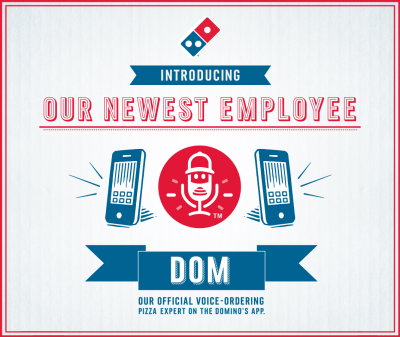
The Top 5 Best Chatbot Messaging Platforms
1ChatInsight
ChatInsight AI can be a valuable addition to businesses that utilize chatbots for customer interactions. It can be trained with a customized knowledge base to answer enterprise-specific questions that makes further breakthrough on large language models like ChatGPT.
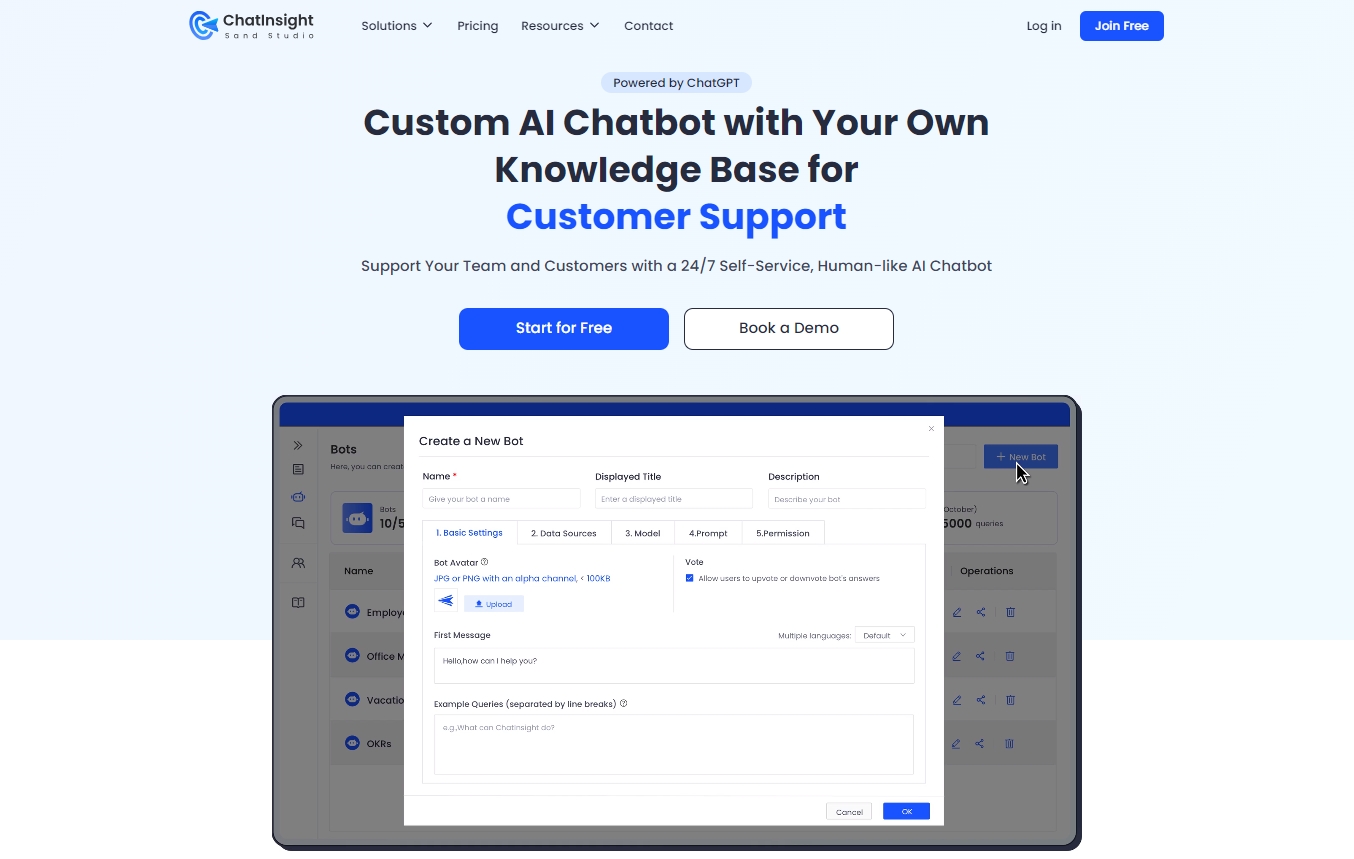
- Large Language Model (LLM): Chatinsight AI utilizes a powerful Large Language Model to understand user queries and provide accurate responses. This enables it to comprehend the context and intent behind user questions, resulting in more relevant and helpful answers.
- Customized Knowledge Base: Chatinsight AI can be trained with a customized knowledge base specific to your enterprise. This allows it to answer industry-specific questions and provide tailored information to users, enhancing the accuracy and relevance of its responses.
- Multilingual Support: Chatinsight AI is designed to support multiple languages, making it suitable for businesses operating in diverse linguistic environments. It can effectively communicate with users in their preferred language, ensuring a seamless and personalized experience.
- 24/7 Availability: Chatinsight AI is available round-the-clock, providing continuous consulting services to users. This ensures that customers can receive assistance and answers to their queries at any time, enhancing customer satisfaction and support.
2Cody
Cody is a versatile AI chatbot builder with a great selection of pre-built templates to get you started. It also comes with ChatGPT 3.5 integration so it can handle contextual cues and complex prompts with ease.
The free plan includes 250 queries/month, 100 document uploads and a web widget.

Key Feature
- Versatile AI Chatbot Builder
- Plentiful Template Selection
- ChatGPT 3.5 Integration
- Upload Company Data to Train Tailor-made Chatbots
your website and social media platforms can be incredibly useful for a myriad of reasons. But if you’re still not
3ChatFuel
ChatFuel is a robust chatbot builder using a drag-and-drop interface with over 60 templates to choose. What makes ChatFuel a great platform to create Facebook Messenger bots for your business is the reasonable tiered pricing plan.
For up to 500 user interactions, the Pro Plan costs $15/month and increases up to $20/month for 1,000 users, and so on.
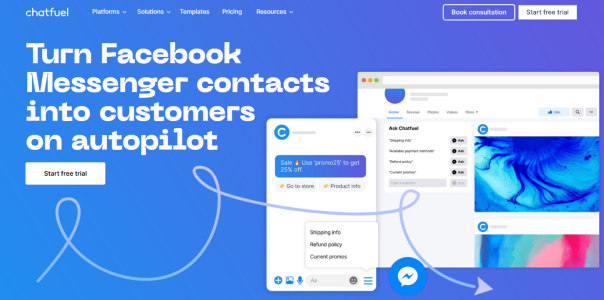
Key Feature
- Built-in ChatGPT Integration
- Over 60 Templates
- No-Code Visual Builder
- Tiered Pricing Plan
4Tidio
Tidio is an easy-to-understand chatbot builder with an attractive UI and a generous free plan. There are 40 templates to choose from, and dedicated templates to help reduce cart abandonment and increase leads.
Tidio has a free plan and the Starter plan is available for $29/month.
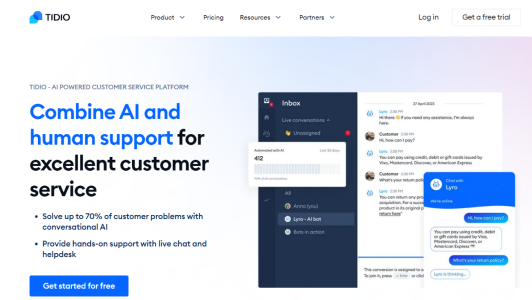
Key Feature
- 40 Pre-Built Templates
- Templates for Cart Abandonment/Lead Generation
- Easy to Understand UI
- Plentiful Integration Support
5Botsify
Botsify is a versatile chatbot builder that supports 100+ integrations and over 100 languages. They provide a great variety of guides and resources to get you started, and the drag-and-drop builder is easy to use.
But it’s slight pricey, starting at $49/month to build a chatbot for WhatsApp Business.
Key Feature
- Multilanguage Chatbot w/ 100+ languages
- Omni Channel Platform Support
- Versatile AI Chatbot Builder
- Comprehensive Tutorials & Guides
How to Choose a Chatbot for Your Business?
AI Chatbot Vs. Rule-Based Chatbot
The first thing to consider is whether you need a rule-based chatbot or an AI chatbot.
Rule-based chatbots work using pathways and keywords. They’re built to recognize keywords and then display designated responses.
Rule-based chatbots can be a great resource for customers to get quick answers to FAQs. This is suited for small businesses that need a basic chatbot before transferring to a human representative.
AI chatbots are far more complex. Using a combination of LLMs, natural language processing, and training data, AI chatbots can understand context and respond accordingly, emulating human conversation.
They respond more naturally than a rule-based chatbot and can solve queries by themselves. This is best for companies that are investing heavily into their chatbot to future-proof their business.
Check the Integrations
A chatbot is only as good as the integrations it supports. If your business has been around for a while, you’ve probably picked up a lot of channels, platforms, and tools.
It’s best to ensure your chatbot builder supports your social media platforms, CMS, CRM, payment channels, email integrations, etc. Building your chatbot to connect to your existing system will make it easier to manage in the long term.
Make Sure the Chatbot is Trained in Your Industry
The most important thing to consider before choosing a chatbot is to make sure it’s built to handle your industry. There are plentiful choices for chatbots, but not all of them are made to handle every industry.
For example, if you’re an e-commerce site, you should build a chatbot on a platform that caters to e-commerce. This includes well-organized templates to build from as well as relevant training data for AI chatbots.
This helps you create comprehensive and versatile chatbots catered to your needs.
Final Thoughts – Why You Should Implement Chatbot Technology in Your Business
Hopefully, with what we’ve gone over, you’ve got a clearer picture of if you need an AI chatbot for your business. They can be incredibly useful tools to help streamline your operations.
Realistically speaking, most businesses, big or small implement chatbots to help deal with daily messages and cases. But they can do much more than that, and help grow your business in a variety of ways.
The good news is you don’t have to go all in at the start.
Start slowly by building a chatbot to handle your FAQs and go from there. Eventually, your chatbot will be able to handle the bulk of your daily workload, boosting your business’s productivity and customer satisfaction.
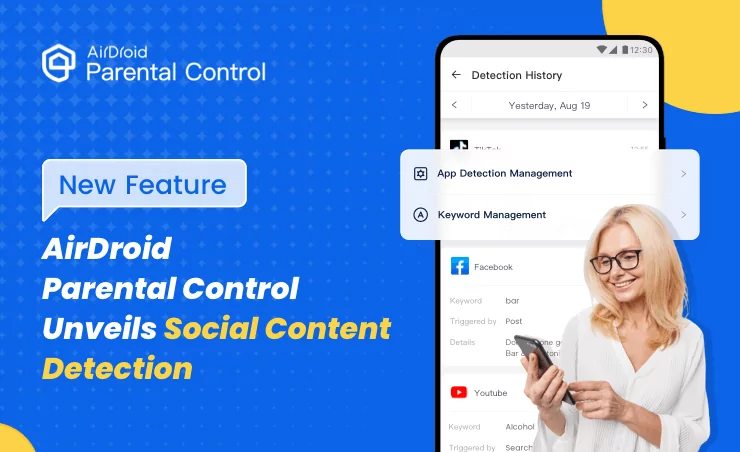
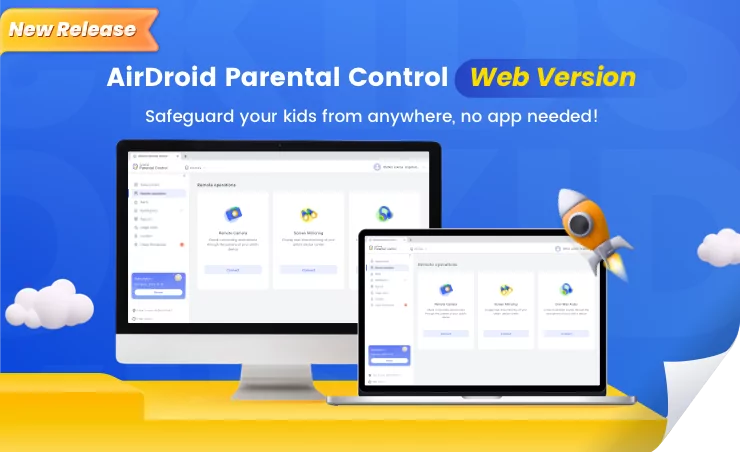
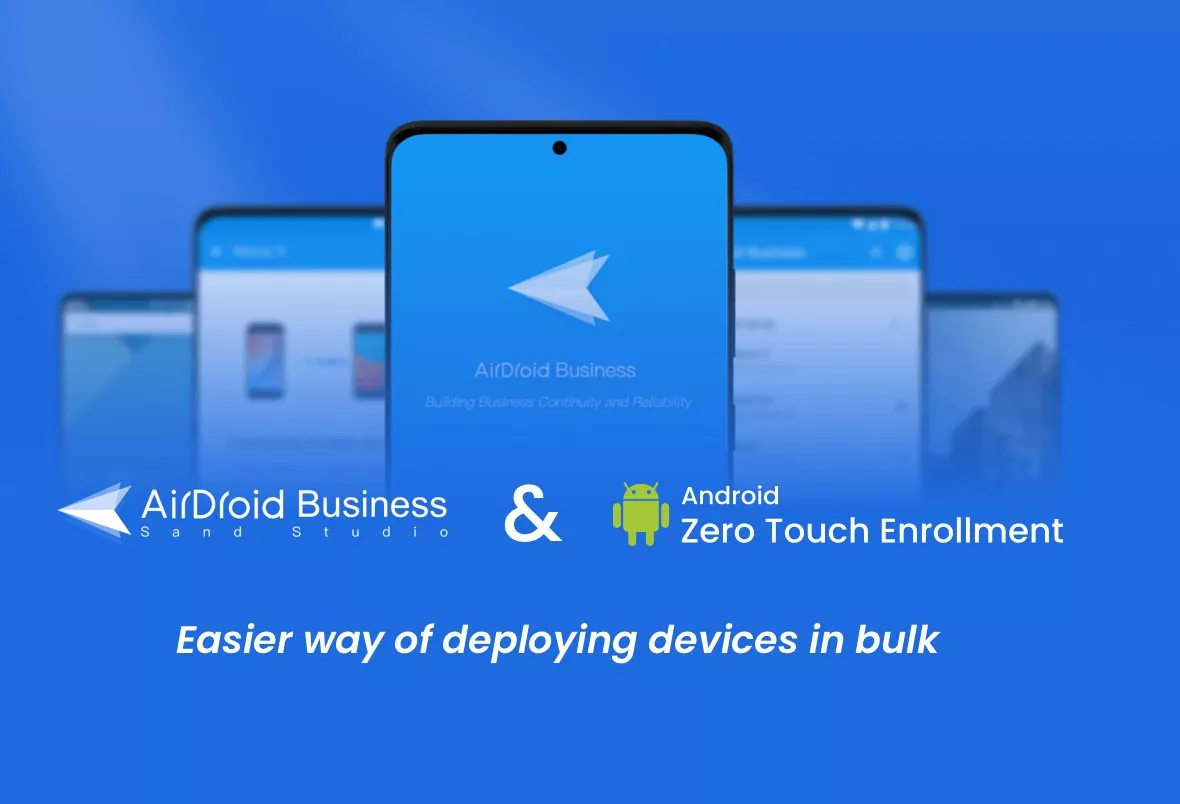
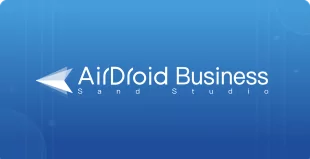
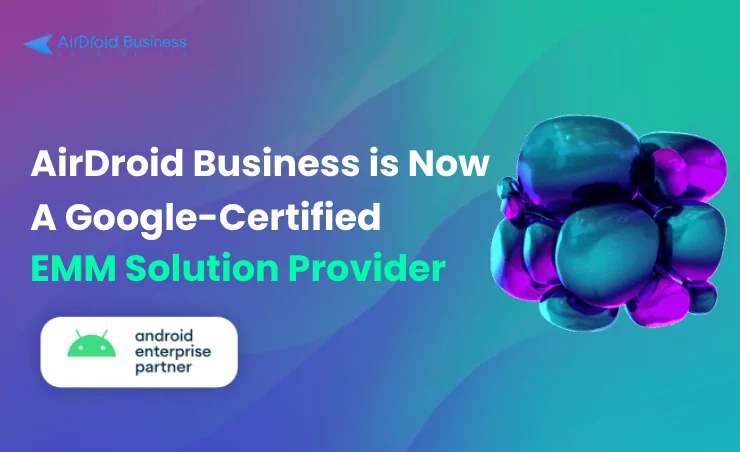



Leave a Reply.